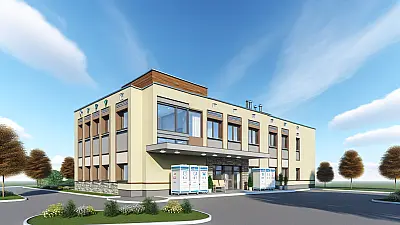CHICAGO, IL - Federal inspectors found that Aperion Care International failed to follow established protocols for reporting diagnostic test results to physicians and notifying families of resident condition changes during a May 2025 inspection.

Critical Breakdown in Medical Communication Systems
The nursing home was cited for significant gaps in its physician notification procedures, particularly regarding laboratory and diagnostic test results that could indicate serious medical conditions requiring immediate intervention. According to the inspection report, the facility's own policy requires licensed nurses to ensure that "test results are reported to the physician or other practitioner who ordered them," with particular emphasis on findings that "may require immediate intervention including but not limited to: Pneumonia, New fracture."
The violation represents a fundamental breakdown in the medical communication chain that connects diagnostic testing with appropriate clinical response. When test results indicating conditions like pneumonia or fractures are not promptly communicated to attending physicians, residents face increased risks of complications, delayed treatment, and potentially life-threatening deterioration of their conditions.
Medical Consequences of Delayed Reporting
Prompt communication of diagnostic results is a cornerstone of quality medical care in nursing home settings. When X-rays reveal new fractures, immediate physician notification enables rapid pain management, proper immobilization, and prevention of further injury or displacement. Similarly, laboratory results suggesting pneumonia require urgent antibiotic intervention, as this condition can progress rapidly in elderly residents, potentially leading to sepsis or respiratory failure.
The facility's policy specifically identifies STAT and same-day orders as requiring immediate telephone notification to laboratory services, recognizing that certain medical situations demand expedited processing and reporting. This protocol exists because elderly nursing home residents often have compromised immune systems and multiple chronic conditions that can mask or accelerate the progression of acute illnesses.
Family Notification Protocol Failures
The inspection also revealed problems with the facility's family notification procedures during resident condition changes. Federal regulations require nursing homes to inform residents' legal representatives or interested family members when decisions are made to transfer or discharge residents from the facility. This communication requirement ensures families can participate in care decisions and understand changes in their loved one's medical status.
The facility's own policy, revised in November 2018, emphasizes the need for "timely, efficient, and effective" communication with both attending physicians and family members when medical care problems arise. Proper family notification allows relatives to coordinate with medical teams, provide emotional support during transfers, and ensure continuity of care preferences.
Industry Standards and Best Practices
Medicare and Medicaid regulations establish clear expectations for nursing homes regarding diagnostic test management and family communication. Licensed nurses are required to monitor test results systematically and maintain detailed records of physician notifications. Industry best practices recommend establishing multiple backup systems to prevent communication failures, including electronic alerts, standardized reporting timeframes, and supervisor oversight of critical results.
The inspection findings suggest that Aperion Care International's existing policies, while appropriately written, were not being consistently implemented. The facility's written procedures correctly identify high-priority conditions and specify responsible staff roles, indicating that the problems likely stem from execution rather than policy design.
Regulatory Response and Oversight
The Centers for Medicare & Medicaid Services classified these violations as causing "minimal harm or potential for actual harm" affecting "few" residents. However, even minimal-level citations in communication protocols can indicate systemic issues that may affect broader aspects of resident care. Federal inspectors focus on these procedural violations because they often serve as early warning signs of more serious quality-of-care problems.
The inspection documentation shows that facility policies were revised as recently as 2018, suggesting ongoing efforts to maintain compliance with federal standards. However, the presence of violations indicates that policy implementation may require additional staff training, system improvements, or enhanced oversight procedures.
Effective communication systems in nursing homes require coordination between multiple departments, including nursing staff, laboratory services, physician offices, and administration. When any component of this system fails, the entire care coordination process becomes vulnerable to delays that can compromise resident safety and family involvement in care decisions.
Full Inspection Report
The details above represent a summary of key findings. View the complete inspection report for Aperion Care International from 2025-05-29 including all violations, facility responses, and corrective action plans.
💬 Join the Discussion
Comments are moderated. Please keep discussions respectful and relevant to nursing home care quality.